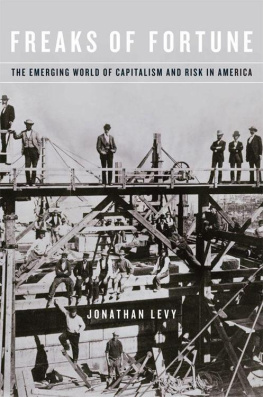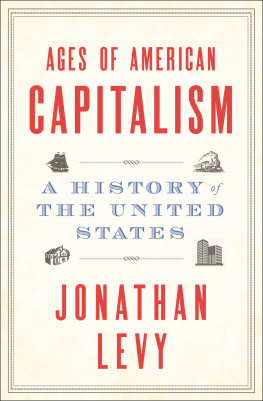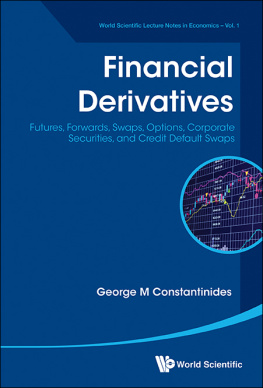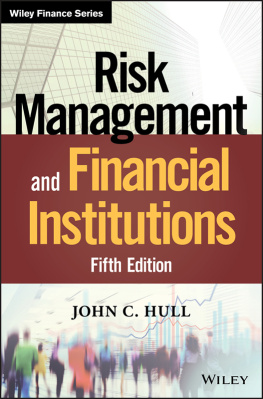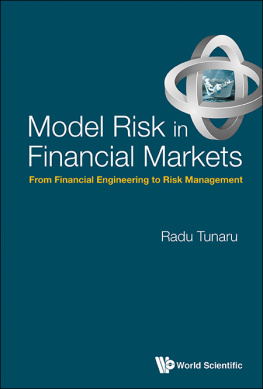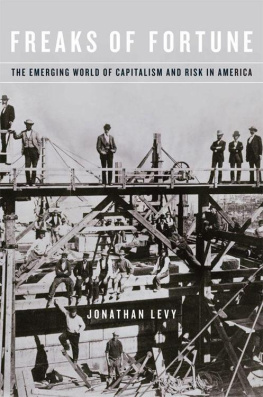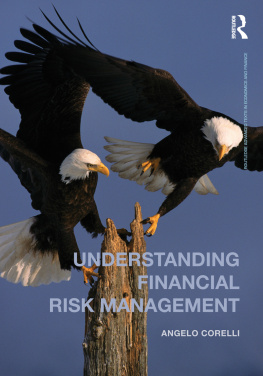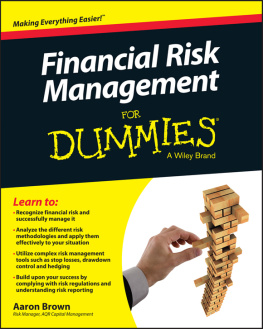Freaks of Fortune
Freaks of Fortune
THE EMERGING WORLD OF CAPITALISM AND RISK IN AMERICA
Jonathan Levy
Harvard University Press
Cambridge, Massachusetts, and London, England
2012
Copyright 2012 by the President and Fellows of Harvard College
All rights reserved
Cover art: Getty Images/Gandee Vasan/Stone
Cover design: Graciela Galup
The Library of Congress has cataloged the printed edition as follows:
Levy, Jonathan, 1978
Freaks of fortune : the emerging world of capitalism and risk in America / Jonathan Levy.
p. cm.
Includes bibliographical references and index.
ISBN 978-0-674-04748-8 (alk. paper)
1. CapitalismUnited StatesHistory19th century. 2. Risk-Sociological aspectsHistory19th century. 3. Risk-taking (Psychology)United StatesHistory19th century. 4. United StatesEconomic conditions19th century. 5. United StatesSocial conditions19th century. I. Title.
HC105.L48 2012
330.12'2097309034dc23 2012014805
For my parents, Joanne and Martin Levy
Contents
this savages sword, thought I, which thus finally shapes and fashions both warp and woof; this easy, indifferent sword must be chanceaye, chance, free will, and necessityno wise incompatibleall interweavingly working together. The straight warp of necessity, not to be swerved from its ultimate courseits every alternating vibration, indeed, only tending to that; free will still free to ply her shuttle between given threads; and chance, though restrained in its play within the right lines of necessity, and sideways in its motions directed by free will, though thus prescribed to by both, chance by turns rules either, and has the last featuring blow at events.
Herman Melville, Moby-Dick
Voyage
Sail forth! Steer for the deep waters only!
Reckless, O soul, exploring, I with thee, and thou with me;
For we are bound where mariner has not yet dared to go,
And we will risk the ship, ourselves and all.
Walt Whitman, Passage to India (1871)
I N THE NINETEENTH-CENTURY U NITED S TATES , voyage was an image that Americans invoked time and again to capture what it was like to live on the stormy seas of capitalism. In 1871 Walt Whitman offered a maritime allegory of the experience of individual freedom. To do so he evoked risk. Long a technical concept in the financial arena of marine insurance, at the end of the eighteenth century risk still simply referred to the commodity bought and sold in an insurance contract. Outside the world of long-distance maritime trade risk had very little meaning or use.
Sometime during the nineteenth century it became all but impossible to imagine the modern condition without the word risk. By 1871 Whitman was able to invest risk with great lyrical power. Capitalisman economic system that thrives off radical uncertaintywas asserting control. Meanwhile, men had begun to insure their own lives, brokers had begun to sell mortgage-backed securities, and farmers were beginning to buy commodities futures contracts. Uncertainties and anxietiessome old, some newhad to be managed and coped with, perhaps even capitalized upon. Risk management was born.
The spread of capitalism had brought the insecurity of the sea to the land. Human beings had long associated the power of chance with the capricious tides of the high seas. Now the image of the ship on stormy waters became a powerful metaphor for the perils and possibilities of life under capitalism. Nineteenth-century Americans spoke of howling winds, thunder claps, unknown breakers, and tempests and storms and cyclones that swept over the deepfor which they were not responsible. But they had to learn to cope with them, and even to profit from them. As daunting as the task of managing risk could be, there was also the existential thrill of taking a risk. That tension was at the very operational and moral heart of both capitalism and a rising liberal order.
In the nineteenth-century Americans had their own term for this tension, for all of the sudden economic twists and turns, booms and busts, and ups and downs that were newly and inexplicably in their midst. They called them freaks of fortune.
Within the context created by the freaksby the economic chance-world of capitalismthe history of risk comes into view. The notion that risk has a history might come as a surprise. Or, it may seem that an obsession with risk is recent, dating to some time after the 1970s and the onset of crisis for industrial capitalism in the West. An era of pervasive insecurity ensued, one in which risk had to be embraced. Since risk is now so ubiquitous, it might seem impossible to write its history.
Yet, risk does have a history. As a human invention, as a historical protagonist, risk has a biography. In the United States, the most decisive chapters in risks history were written in the nineteenth century. For by the end of that century, much like throughout the world today, risk was in fact everywhere. Before that century of capitalist transformation, however, it was not. But risk did not appear out of nowhere. It was born on the deep, in the act of maritime voyaging.
Risk was first synonymous with marine insurancea financial instrument for coping with the uncertainty of transporting commercial goods across maritime space. Buying and selling risks, long-distance trading merchants purchased from each other financial compensation in the contingent event that a peril of the seas or an act of God struck their long-distance voyages and destroyed their property. Risk did not then mean extreme peril, hazard, or danger. It did not refer to the immaterial fear of an undesirable event. Rather, it originally referred to something material: a financial instrument for coping with the mere possibility of peril, hazard, or danger.
The etymology of the word reflects this historical origin. It can be traced back to the sixteenth-century French risqu, and even further to the thirteenth-century Italian rischio. Beyond that, all possible roots, including the likely Arabic candidate, appear in maritime commercial contexts. It is possible that mariners invented the term to refer to uncharted waters upon which they would not voyage. The Oxford English Dictionary emphasizes that risk connoted the possibility of damage to merchandise when transported by sea. Risk made its appearance in the English language in the sixteenth century, but in the United States even as late as the 1820s it had yet to be fully anglicized from risquethe commodity exchanged in a marine insurance contract. Then, rather suddenly, risk exploded in everyday language. So would financial risk management.
Risk management was one way to cope with an uncertain future. But at the opening of the nineteenth century there were other ways to do the same. Commerce was ever-present, but America was still very much a rural and hierarchical society. The large majority of persons were legal dependents: wives, children, servants, and slaves. Households and communities achieved social security by coping with the burden of peril together. For men who were masters of households, the ownership of physical forms of capital and wealthslaves and above all landanchored economic security. Risk management was for offshore hazards, inapplicable to dangers onshore, where men might tremble before acts of God instead of commodifying them. Many onshore dangersfire, disease, a bad harvest, a premature deathwere after all still biblical in nature. Religious authorities counseled that in the end divine providence ruled over the future. And if the future was certain because God determined it, then risk management might be unnecessary, if not all together wrong. After migrating inland risk management competed with other ways to copesocially, economically, culturallywith the perils of an uncertain future. It would always remain in competition.
Next page
